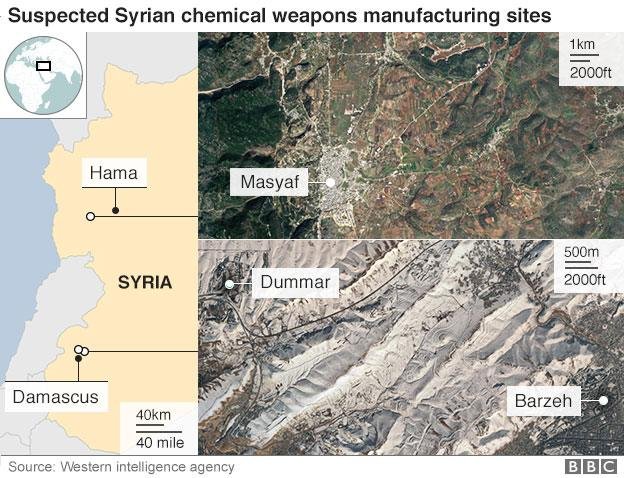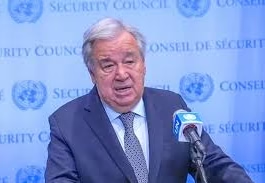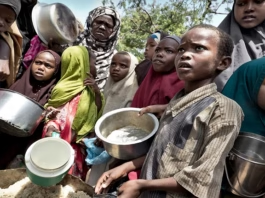Introduction to Chemical Weapons Concerns
The use of chemical weapons has been a significant concern in the ongoing conflict in Syria, which has persisted since 2011. Initially, the Syrian War erupted from political unrest and has since transformed into a complex humanitarian crisis, with multiple factions involved. Throughout this conflict, allegations of chemical weapon usage have persisted, raising widespread alarm within the international community. The most notable instance occurred in August 2013, when a sarin gas attack in Ghouta killed hundreds of civilians, prompting global outrage and calls for accountability.
The international community, recognizing the severe threat posed by chemical weapons, has initiated various measures to address this issue. The United Nations (UN) established the Organization for the Prohibition of Chemical Weapons (OPCW), which seeks to eliminate the use of chemical agents and ensure compliance with the Chemical Weapons Convention. Despite these efforts, challenges remain, particularly regarding the verification of compliance and the neutralization of toxic substances in conflict zones. Reports indicate that various parties within the Syrian conflict have allegedly continued to utilize chemical warfare, heightening tensions and complicating diplomatic efforts.
Monitoring activities concerning chemical weapons in Syria is paramount not only for the immediate safety of civilians but also for the integrity of international law. These activities underscore the necessity for a robust framework to address violations and hold perpetrators accountable. The evolving geopolitical dynamics further complicate the involvement of external actors, as differing interests can hinder cooperation in addressing the chemical weapons issue. As new evidence emerges, understanding the implications of these findings is vital for assessing the overall situation in Syria and the effectiveness of current preventive measures.
Details of the New Evidence
The recent findings reported by the Organization for the Prohibition of Chemical Weapons (OPCW) have unveiled critical insights into Syria’s chemical weapons landscape. The investigation centers around the discovery of specific nerve agents at designated sites, presenting a stark reminder of the ongoing concerns regarding the proliferation and use of chemical weapons in the region. Notably, the OPCW utilized advanced analytical methods coupled with meticulous field investigations to collect samples from the affected areas. These techniques included environmental sampling, where residues were analyzed to identify the chemical composition of the agents present.
The new evidence includes the detection of a particular nerve agent, which raises significant questions regarding compliance with the Chemical Weapons Convention (CWC). The OPCW’s process involved rigorous protocols, ensuring that the chain of custody for the samples was preserved, thus maintaining the integrity of the evidence collected. The implications of these findings are profound, as they not only contribute to the body of knowledge surrounding Syria’s chemical weapons capabilities but also challenge the international community’s response to violations of chemical weapons norms.
Understanding the significance of this evidence requires a broader perspective on Syria’s historical context concerning chemical arms usage. Previous allegations of chemical attacks have drawn global condemnation and calls for accountability. However, these new findings by the OPCW offer distinct corroboration of nerve agents’ existence, which has implications for potential legal actions and international diplomatic pressure directed at the Syrian government. Furthermore, the revelations underscore the importance of adherence to international law and the necessity for effective mechanisms to prevent the use of such weapons, reinforcing the need for vigilant enforcement of chemical disarmament protocols across the globe. The ongoing investigation by the OPCW ensures that the international community remains informed and engaged in addressing these pressing matters.
Expansion of Chemical Weapons Investigations
Recent developments in Syria’s chemical weapons controversy have unveiled information suggesting that over 100 additional sites may be implicated in chemical weapons activities, significantly expanding the scope of investigations. This expansion from the previously identified 26 sites calls for a comprehensive reassessment of international monitoring efforts aimed at ensuring compliance with global non-proliferation norms. The introduction of these potential sites raises critical questions regarding the efficacy of existing investigative frameworks and the ability of organizations, such as the Organisation for the Prohibition of Chemical Weapons (OPCW), to adequately respond to this broader challenge.
The increase in suspected chemical weapons sites necessitates heightened scrutiny and a more proactive approach from international bodies responsible for monitoring compliance with chemical weapons conventions. It also emphasizes the need for enhanced cooperation between nations to facilitate information sharing and resource allocation, crucial for effective investigation. The identification of these additional sites may require the deployment of more personnel and advanced technologies to comprehensively assess the situation on the ground, which poses logistical and financial challenges for organizations engaged in these operations.
Moreover, the potential expansion of chemical weapons investigations presents several obstacles. Access to these sites may be restricted due to ongoing conflict and political considerations, complicating verification efforts. Additionally, the spread of such activities across a larger geographical area may strain investigative resources, hampering the rapid response necessary to address emerging threats. As international attention shifts towards these newly identified sites, finding a balance between meticulous investigation and timely action will be paramount to ensuring accountability and addressing breaches of chemical weapons conventions.
Overall, the implications of this expansion are profound, as it not only reflects the complexities inherent in the Syrian conflict but also underscores the ongoing challenges faced by the international community in ridding the world of chemical weapons.
Conclusion and Call to Action
The revelations surrounding the ongoing controversy of chemical weapons use in Syria underscore a critical turning point in international relations and human rights advocacy. The findings indicate that the systematic use of chemical agents not only violates international law but also endangers global peace and security. The conclusion drawn from these developments is unmistakable: there is an urgent need for the international community to respond decisively to the alarming evidence regarding chemical weapon atrocities in Syria.
First and foremost, the call for increased support for the Organisation for the Prohibition of Chemical Weapons (OPCW) is imperative. The OPCW plays a vital role in monitoring and verifying compliance with chemical weapons conventions. Sustained and enhanced backing from member states is essential to bolster its capabilities in investigating allegations, analyzing evidence, and enforcing regulations. The international community must prioritize funding and resources for the OPCW, enabling it to function effectively amidst ongoing challenges.
Moreover, collaboration among nations is crucial for confronting the pervasive issues surrounding chemical weapons. Joint efforts and information sharing can lead to more robust interventions and hold accountable those acting outside international legal frameworks. Diplomatic dialogue must take precedence to foster cooperative mechanisms aimed at dismantling chemical arsenals and preventing future occurrences. Countries must coalesce around a shared responsibility to uphold the norms established against the use of these inhumane weapons.
In conclusion, the complexities of Syria’s chemical weapons controversy demand immediate and concerted action. The international community must not only condemn the violations but also act proactively to fortify the global standards against chemical weapons. Only through unified efforts can we ensure accountability and safeguard human rights for future generations.




